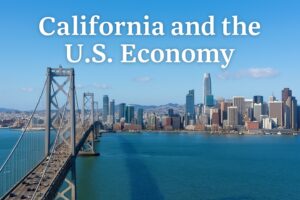An honest look at labor, trade, and the economic ripple effect
California has always been a place of contrasts—lush fields and tech giants, vast coastlines and sprawling cities, innovation and agriculture. But today, the Golden State is facing some hard truths that deserve a wider conversation.
One of them? Labor.
The Quiet Backbone of California’s Workforce
For decades, California has relied—often silently—on the labor of undocumented workers. From harvesting produce in the Central Valley to maintaining olive orchards in the countryside, these individuals have filled a gap in the workforce that few others are willing or able to take on.
I know someone who owns an olive orchard. He’s a good man. Honest. Hardworking. But he’ll tell you openly: he depends on migrant workers—many undocumented—to keep his operation going. It’s not a matter of politics. It’s just the reality of a system that’s been quietly in place for decades.
And it’s not just agriculture.
A Global Trade Hub Sitting on the Edge
California also holds the longest coastline in the continental U.S., making it a powerhouse for international trade. Ports like Los Angeles, Long Beach, and Oakland are gateways to the world—especially when it comes to electronics and goods tied to Silicon Valley and the Bay Area tech economy.
When global supply chains slow, California feels it first. And when California feels it, we all do.
More Than Just a State—A Global Economy
Many don’t realize this:
California is the 5th largest economy in the world.
That’s not just impressive—it’s vital.
California contributes far more to the federal government than it receives in return. So when California suffers—whether from labor shortages, inflation, natural disasters, or policy missteps—it doesn’t just affect state residents. It affects all of us.
We may live in different zip codes, but we’re deeply interconnected.
What Now?
This isn’t about taking a political stance. It’s about paying attention to what holds systems together—and what happens when those systems begin to fray.
Whether it’s rethinking immigration policy, supporting small farms, or finding sustainable labor solutions, California’s challenges are America’s challenges too.
And when the fifth largest economy in the world starts to struggle, it’s not just a local issue.
It’s a national wake-up call.
